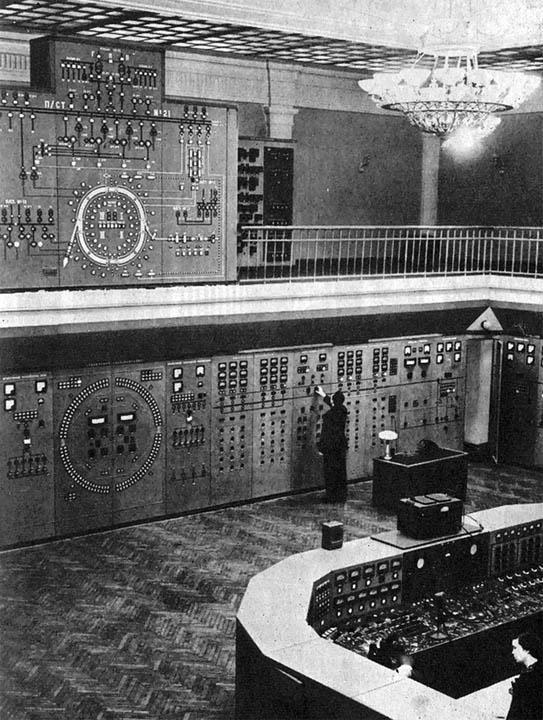Lippman developed the notion of the 'manufacture of consent,' in democratic societies. In these contexts 'public opinion' is considered the new force in these more accountable societies – where the advent of democracy and participatory politics forced overt forms of violence against the populace to be restrained. Power shifted from overt forms of oppression to give rise to soft power this type discursive coercion. As such language became increasingly important to systems of power. And a means for shaping the sentiments of individuals.
He believed that 'public opinion' was too varied and messy, it need to be harnessed by those who could provide the information for a logical argument, embody the sentiment of the populace and put forth proposals in line with those desires. The 'manufacture of consent' is perpetrated by those who have an interest in positions of power – Lippman holds that the majority of the population is not concerned with events in the greater public sphere and rather prefers not to exercise their potential ability afforded by the democratic system. Hence there was the need to shape and form public opinion through the production and distribution of information, with such tools as the media, to provide the points of reference and framework from which a discussion can unfold, albeit within these certain acceptable 'mainstream' boundaries.
The legitimacy of those in power, according to Lippman, is in part based on a privileged access to unfiltered information – through their proximity to centers of power and events, private conversations, an image of the world - which allows them a fuller appraisal of the situation and hence best placed to make judgements on behalf of the public. It is this legitimacy which we can see being currently challenged, as alternative venues of direct exchange of ideas and images of events have emerged and information has become part of the commons in which we all participatory, this poses a grave threat to systems of power and has redoubled the efforts of coercion – not only through the attempts to limit such forums – but also by utilizing such means of communication to amplify their perspective. Many times this includes posing alternative narratives of events, spin, or even the construction of images. It is in this environment of the acceleration of information that public relations have become of even greater importance to those with a vested interest that might be counter the public at large.
Included below is an extended citation that provides both a summary of Lippmann's notion of the manufacture of consent and also alludes to the inherit relationship this transmission of image and the role of the artist. Lippmann classifies the 'creation of consent' as an 'art' and 'technic' (the etymological base for art). Here he foreshadows Jacques Rancière's radical dismissal of the barrier between art and politics. Rancière claims that if we see politics as a sort of distribution of the sensible – making visible certain information, making heard certain voices among the milieu, or drawing attention to particular perspective – this configuration of what we see, hear and feel can be seen as both the object of politics and also the crucial to the task of the artist.
With the advent of social networks and alternative modes of sharing of information and images, such as Twitter and Facebook, we can see - in light of the Arab Spring - how once again 'the practice of democracy has turned a corner' at the beginning of the 21st century. As is evident in the ongoing discussions in Egypt and elsewhere, the pressing question – as well as the title of the Russian art collective Chot Delat – is “What is to be done?” How can information in the shared commons be put into action? How does the language of art, question and intervene? Is art therefore a point of departure or the ongoing negotiation of process, one that allows for intersection of art and the citizen without privileging one position over the other.
Full Text
http://www.manybooks.net/titles/lippmannetext04pbpnn10.html
Walter Lippmann, “Public Opinion,” 1922, pp. 86-87.
The established leaders of any organization have great natural advantages. They are believed to have better sources of information. The books and papers are in their offices. They took part in the important conferences. They met the important people. They have responsibility. It is, therefore, easier for them to secure attention and to speak in a convincing tone. But also they have a very great deal of control over the access to the facts. Every official is in some degree a censor. And since no one can suppress information, either by concealing it or forgetting to mention it, without some notion of what he wishes the public to know, every leader is in some degree a propagandist. Strategically placed, and compelled often to choose even at the best between the equally cogent though conflicting ideals of safety for the institution, and candor to his public, the official finds himself deciding more and more consciously what facts, in what setting, in what guise he shall permit the public to know.
That the manufacture of consent is capable of great refinements no one, I think, denies. The process by which public opinions arise is certainly no less intricate than it has appeared in these pages, and the opportunities for manipulation open to anyone who understands the process are plain enough.
The creation of consent is not a new art. It is a very old one which was supposed to have died out with the appearance of democracy. But it has not died out. It has, in fact, improved enormously in technic, because it is now based on analysis rather than on rule of thumb. And so, as a result of psychological research, coupled with the modern means of communication, the practice of democracy has turned a corner. A revolution is taking place, infinitely more significant than any shifting of economic power.
Within the life of the generation now in control of affairs, persuasion has become a self-conscious art and a regular organ of popular government. None of us begins to understand the consequences, but it is no daring prophecy to say that the knowledge of how to create consent will alter every political calculation and modify every political premise.







Comments 5
Say something